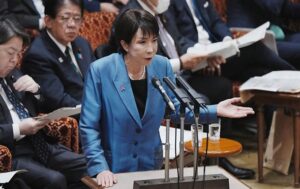
On Thursday, the Chinese Ministry of Commerce said that Japanese Prime Minister Sanae Takaichi’s remarks on Taiwan had a negative impact on Sino-Japanese economic relations.
“Prime Minister Takaichi’s erroneous remarks on Taiwan, made in public, have fundamentally undermined the foundation of China-Japan relations and seriously damaged bilateral economic and trade ties,” Western media quoted ministry spokesman He Yongqian as saying.
“If the Japanese side continues to take such actions and continues to move in the wrong direction, China will resolutely take the necessary measures, and all the consequences will fall on Japan,” she promised.
The media reminds us that China is the second most important market for Japan. In 2024, according to the UN, China purchased $125 billion worth of Japanese goods, mainly industrial equipment, semiconductors, and automobiles.
In November, Takaichi said that an emergency situation around Taiwan involving the use of force could escalate into a “situation that threatens Japan’s survival”; the Kyodo news agency explained that in such a case, Tokyo could resort to its right to collective self-defense.
However, the Chinese authorities consider the Taiwan issue to be an internal matter for China and called on Takai to retract his statements. As a result, Beijing urged its citizens to avoid traveling to Japan and recommended that those wishing to study in that country reconsider their decision in light of the security situation. The Kyodo news agency also reported, citing a source, that China had informed Japan of the suspension of imports of Japanese seafood
. On Thursday, US Ambassador to Japan George Glass condemned these measures by the PRC and called them “economic coercion.” After meeting with Japanese Foreign Minister Toshimitsu Motegi, he assured that the US is committed to ensuring Japan’s defense, including the Diaoyu Islands (Japanese name: Senkaku) in the East China Sea, which are controlled by Tokyo. The islands are the subject of a territorial dispute between Japan and China.
According to Kyodo, 64-year-old Takaichi is known for her “hardline views on security.” In particular, she advocates revising Article 9 of the 1947 Japanese Constitution, which renounces militarism. She is also considered a supporter of ultra-right and nationalist views.
The Taiwan issue arose in 1949 when the People’s Republic of China was proclaimed and part of the Chinese Kuomintang party settled on the island of Taiwan, naming it the Republic of China on Taiwan. Beijing insists on the “one China principle,” according to which it is impossible to recognize both the PRC and the Republic of China on Taiwan at the same time. At the same time, some states have unofficial cultural and economic offices of Taipei.
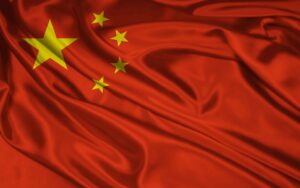
The Embassy of the People’s Republic of China in Ukraine organized a formal reception in Kyiv to mark the 76th anniversary of the founding of the PRC. The event was attended by representatives of the diplomatic corps, Ukrainian authorities, business circles, and the Chinese diaspora.
In his welcoming speech, Chinese Ambassador to Ukraine Ma Shengkun emphasized that China has gone from being a post-conflict state to the world’s second largest economy, and today strives for “high-quality development” and global cooperation. “We have built a society of universal prosperity, lifted 800 million people out of poverty, and created the world’s largest education, healthcare, and social security systems,” he said.
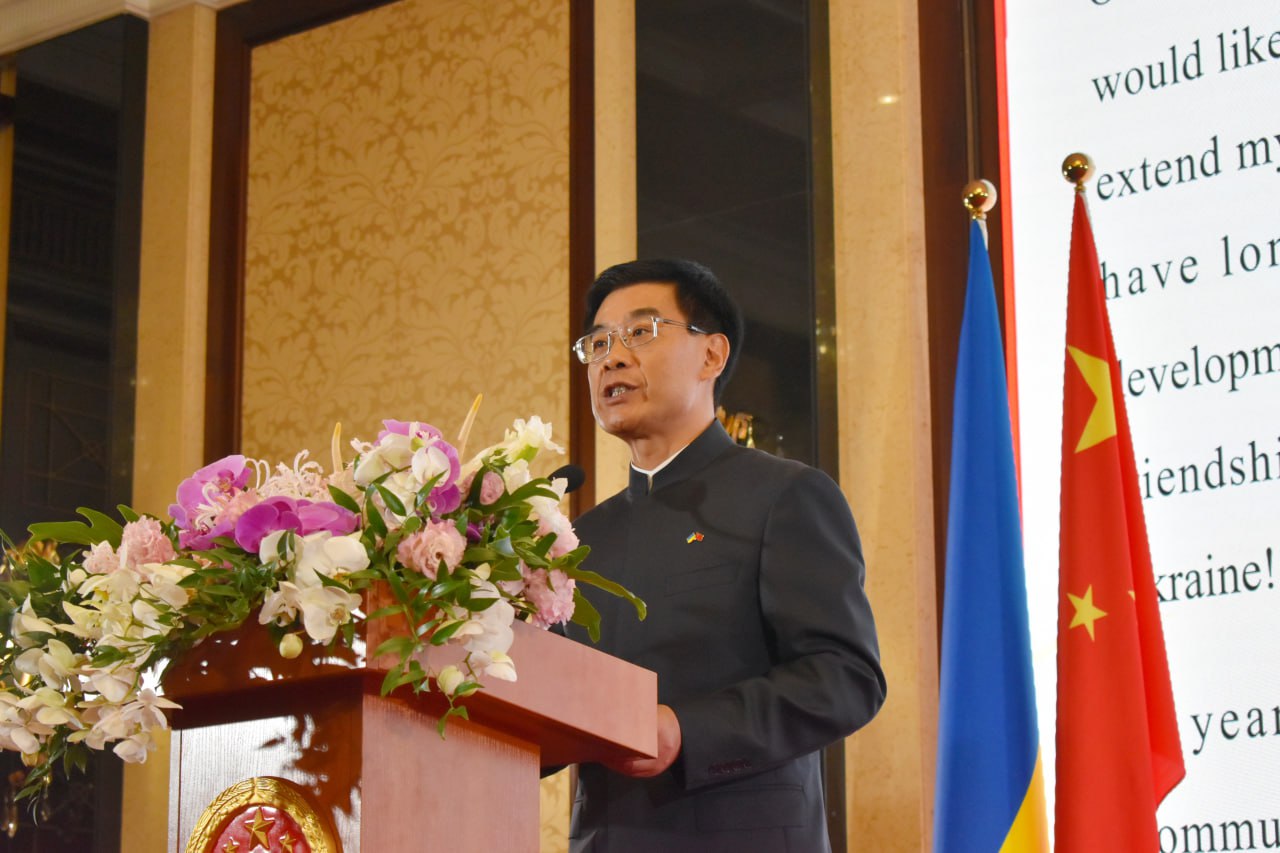
The diplomat noted that between 2021 and 2024, China’s GDP grew by an average of 5.5% per year, and China’s economy is expected to exceed US$19.5 trillion in 2025. Ma Shenkun also mentioned successes in the field of high technology: the development of 5G infrastructure, electric vehicles, space and quantum projects.
He stressed that China and Ukraine are strategic partners: “Our cooperation is based on the principles of mutual respect, mutual benefit and sustainable development. In 2025, we have already signed two protocols on the export of Ukrainian peas and water resources to China.”
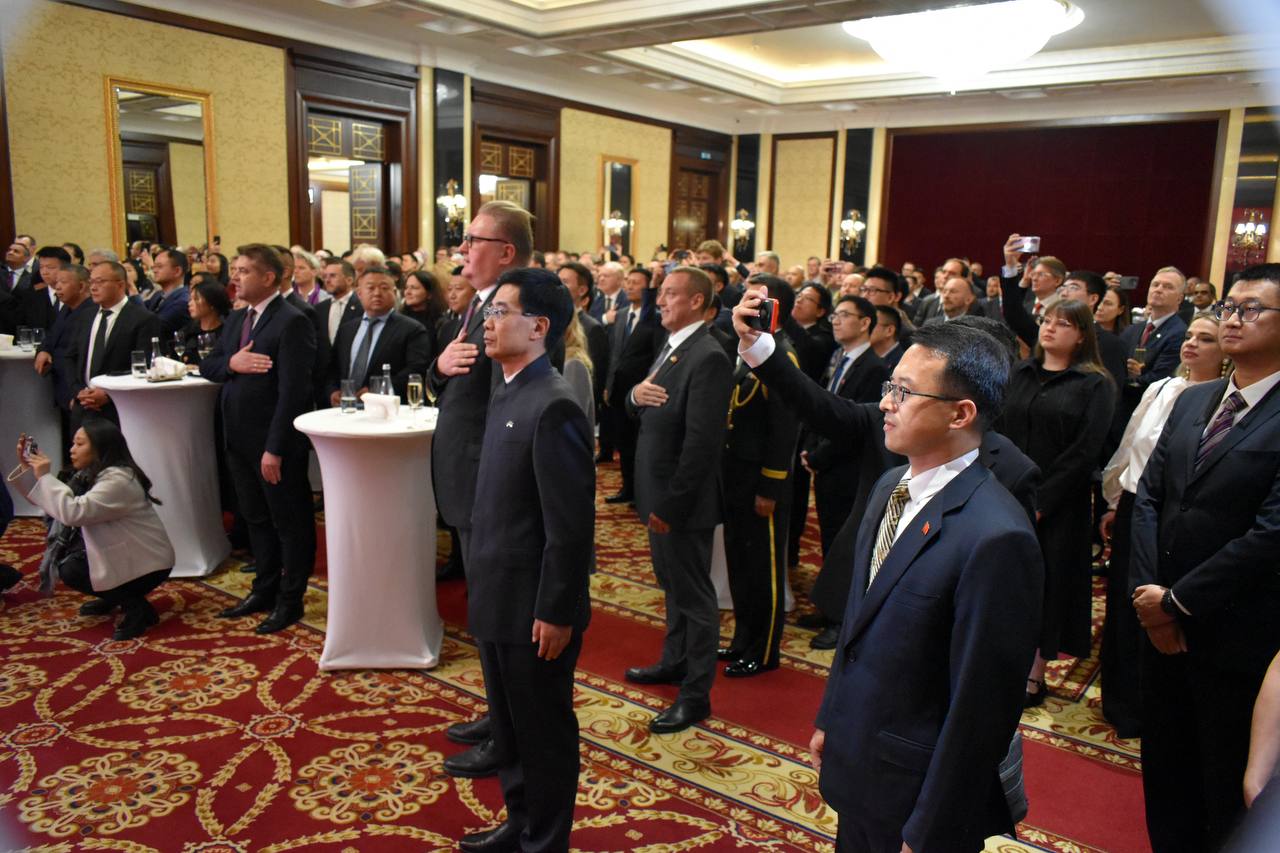
In addition, the ambassador expressed understanding for the challenges Ukraine faces today and assured that China will continue to advocate for a ceasefire and the promotion of a peaceful settlement.
During the reception, toasts were made to strengthen Sino-Ukrainian friendship, and cultural performances and exhibitions reflecting the cultural heritage of both countries were presented.
Ma Shengkun took office as Ambassador Extraordinary and Plenipotentiary of the People’s Republic of China to Ukraine on November 26, 2024.
Diplomatic relations between Ukraine and China were established on January 4, 1992. The Chinese Embassy in Kyiv began operating in December 1992.
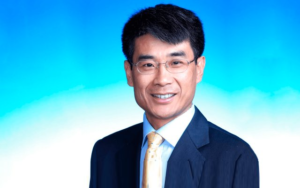
China’s Global Governance Initiative will have a significant economic impact, believes the Ambassador of the PRC to Ukraine, Ma Shenkun.
“It creates new opportunities for the development of trade, investment, and technological exchange, and it can also help the recovery of the world economy after crisis phenomena,” the diplomat noted in a blog.
He pointed out that the Chinese approach envisions “openness, inclusiveness, and mutually beneficial cooperation.”
Ma Shenkun has been serving as the Ambassador Extraordinary and Plenipotentiary of the PRC to Ukraine since 2023.
A career diplomat, he previously held senior positions in the Ministry of Foreign Affairs of China, worked in PRC missions in European countries, and participated in multilateral negotiations in the field of economic and security cooperation.
Source: Author’s column by the Ambassador Extraordinary and Plenipotentiary of the People’s Republic of China to Ukraine Ma Shenkun on the website of the information agency “Interfax-Ukraine”.
GLOBAL GOVERNANCE INITIATIVE, INTERNATIONAL LAW, PRC, UN, Xi Jinping